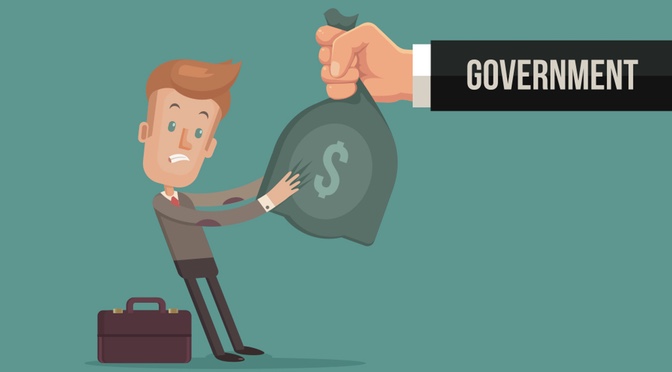After most Americans retire, they typically live off a mix of assets squirreled away in 401(k)s, Roth IRAs, traditional IRAs, stocks and bonds, and CDs. Each of these savings plans carries different tax implications as money is withdrawn from it, leaving it up to you to figure out how to maximize your withdrawals and minimize your taxes. Wouldn’t it be nice to not have to pay Uncle Sam any taxes at all?
The answer to your tax woes is whole life insurance, a highly effective way to get out of the business of traditional retirement strategies entirely. With whole life insurance, you can say goodbye to complicated withdrawal strategies (all of which ultimately end up with you getting taxed anyway), and hello to true wealth management. In this post, we will build a case for why you need to change your investment strategy in order to avoid losing your hard-earned retirement income to Uncle Sam:
Strategies for Keeping Your Money
- Your goal should be to avoid paying taxes altogether: Most retirees cobble together a strategy in which they seek to withdraw from certain funds in a certain order to minimize the tax implications. It’s an understandable goal, but it wouldn’t it be far better if you could avoid paying taxes on your withdrawals in the first place? Whole life insurance gives you that power.
- Whole life insurance cannot be taxed: When you purchase a whole life insurance policy and structure it correctly, the money you invest in the policy is not taxed. And as the value of your policy grows, it grows tax-free, meaning your whole life insurance policy serves as a tax shelter for your investments. By contrast, when you sell stocks that are worth more than what you paid for them, you will be hit with capital gains taxes.
- Your dividends also are not taxed: When you buy whole life insurance through a mutually owned insurance company, you’re entering into a private contract. As you receive dividend payments (not guaranteed but extremely likely), the government cannot tax these dividend payments either, as long as you reinvest the dividends as paid-up additions. The reason is simple: The government cannot interfere with your private contract with a mutually owned life insurance company – you are not even required to report the cash value to the IRS.
- You can borrow against your policy’s cash value: If the tax benefits of whole life insurance aren’t enough to convince you of why you need whole life insurance, then here’s the real kicker: Your policy has a cash value that you can borrow against to fund other investments – or simply use to enjoy your retirement years. Essentially, whole life insurance gives you tax-free liquidity; what other investment can offer that?
Most retired Americans are losing their shirt to Uncle Sam as they access their retirement income, but you can jump off this bandwagon. The solution is whole life insurance, and the reason it’s such an effective retirement vehicle is that the policy itself is not taxed, your dividends aren’t taxed, and you can access the policy’s cash value as liquid cash to fund your retirement years.
At Paradigm Life we can customize a policy to fit your financial situation. Our expert Wealth Strategists are available to answer your questions and show you customized illustrations, outlining an individual plan of action to help you achieve your goals.  , no strings attached.
, no strings attached.







